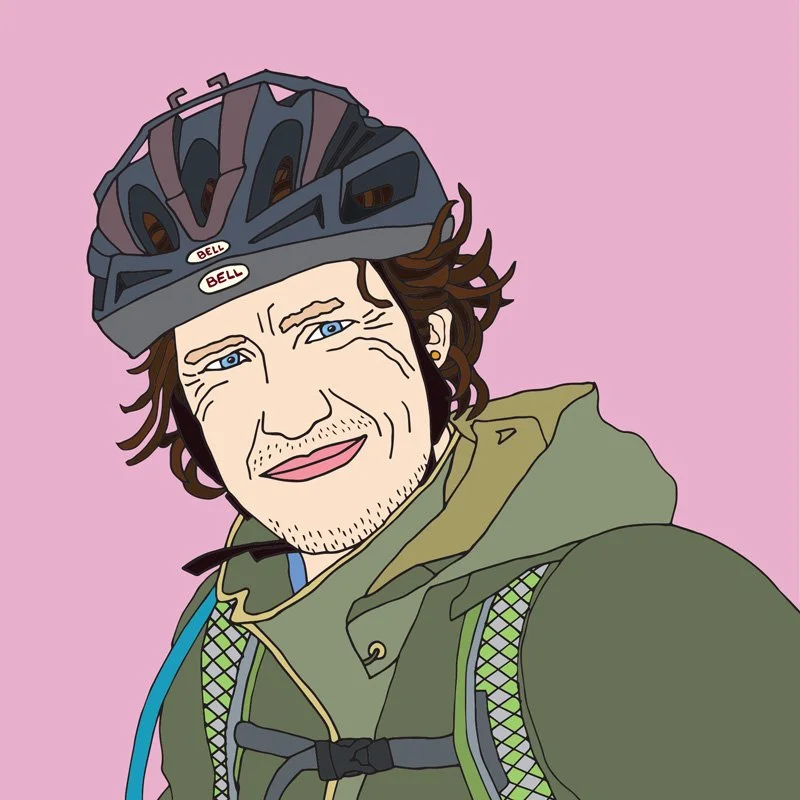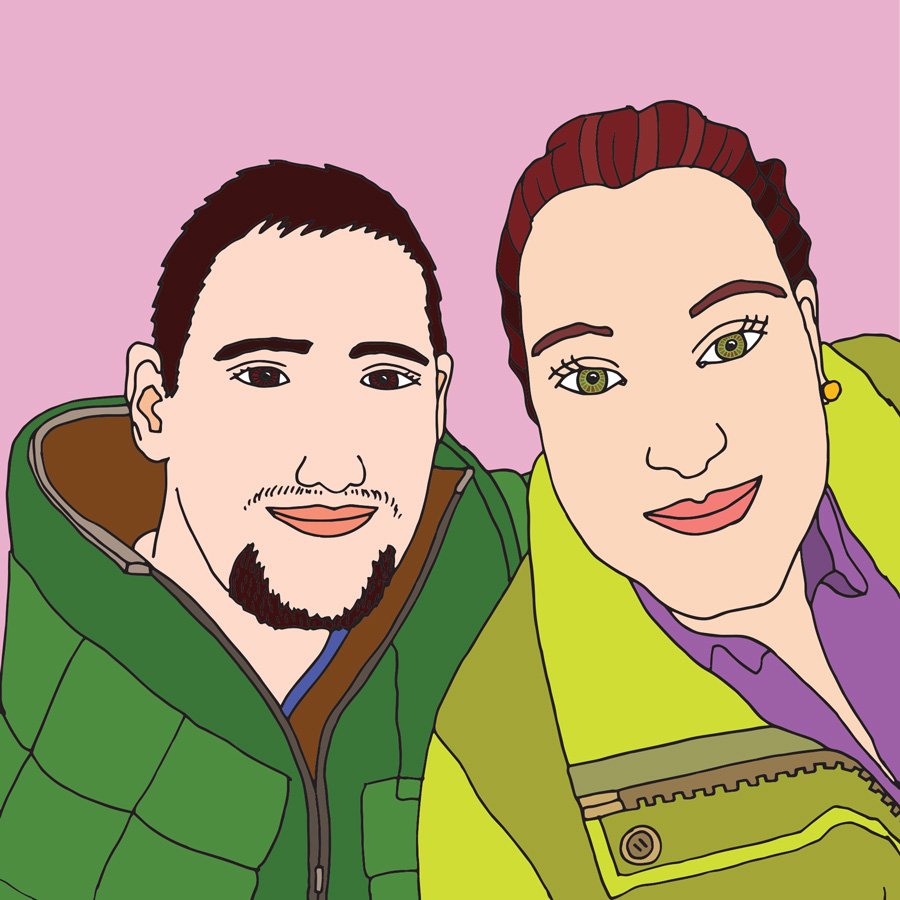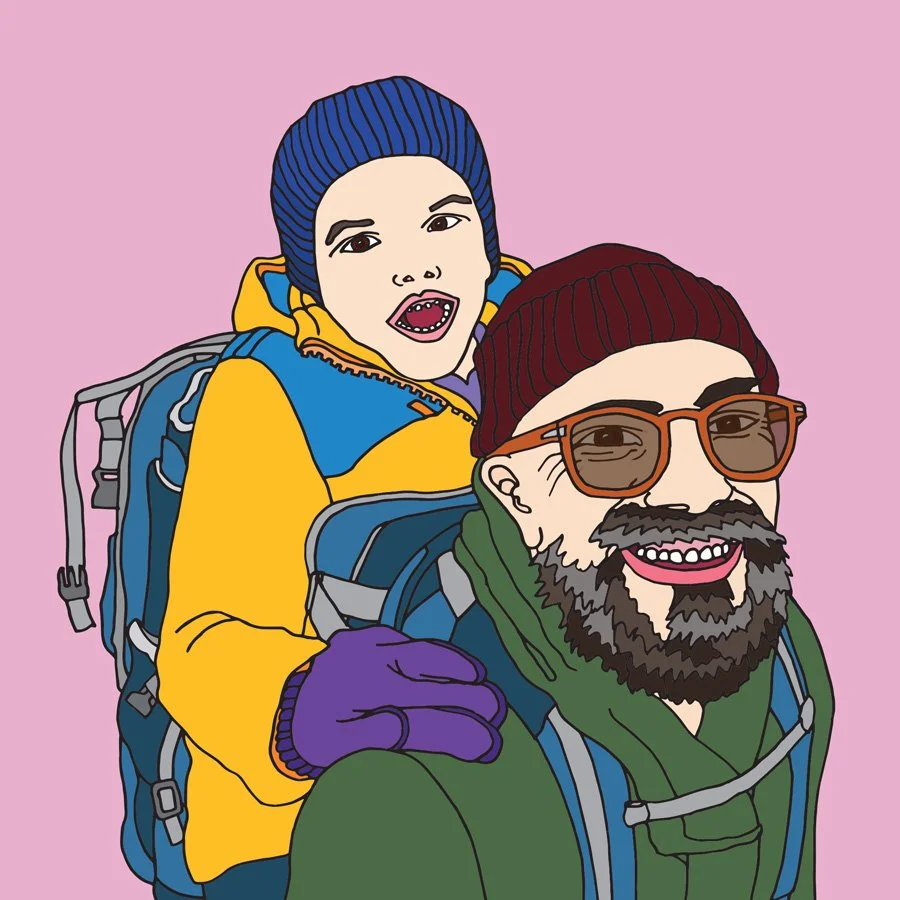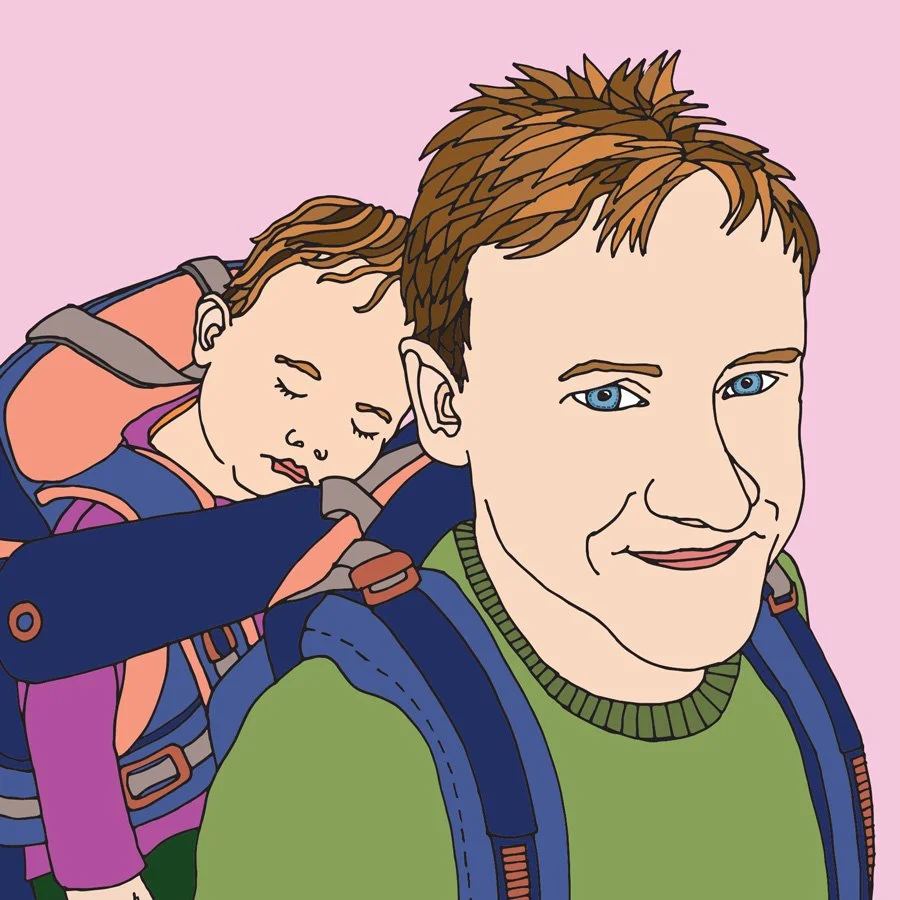BLUE STORIES
Here are a selection of the inspiring stories from fathers that have been shared with The Blue Stories Project: journeys out of perinatal depression. Ngā mihi nui to all who have contributed.
“The thoughts you are having are not uncommon. In fact it’s astonishing how many women have gone through some form of perinatal depression. So ask for help, don’t feel ashamed. And be sure to make some time for yourself and your special ‘fix’.” - Paul
It’s hard to really understand what a partner going through parental depression is really thinking. Our children were quite simply bundles of joy and happiness in their infancy (and still are!). We certainly had a lack of sleep and challenges, but to me this was just parenthood and something all parents went through. It was upsetting and frustrating for me. There was no apparent reason for this depression my partner was experiencing and I felt helpless to resolve anything. Looking back, I wish I could have done more. But really, I don’t know what that could have been. I gave all I could. Time, space, love, care. It only helped momentarily. The effects on me were varied. Most of the time I was able to go on and be the parent and partner I needed to be. To care and support was really all I could do. But my own social life and wellbeing deteriorated somewhat because of it. I gave every opportunity for timeout to my partner to get away and clear the head, but to take that time myself was a bit harder considering I already spent 5 days a week 9 hours a day out of the house. I felt I needed to be there as much as I could to help.
We didn’t have any mental health support for my partner during the time of our first child. We didn’t even know it was perinatal depression. Looking back, my partner doesn’t remember the joy and happiness I recall. What helped make a difference was when I had a fairly serious and unfortunate accident, which actually set the wheels in motion for change. As a result I was required to stay home for 3 months and it meant that we were all together, all the time, working through parenthood. This time together helped with working out the challenges my partner faced and how to work towards improving things.
When we had our second child, a surprise, 7 years after our first, it was met with apprehension by my partner. Loss of freedom, sleepless nights again, etc. This anxiety grew and grew. But we did have support this time. I think our midwife must have put us onto Perinatal Support Nelson. Knowing that my partner was able to speak to someone who knew what she was going through made a huge difference and I didn’t feel so helpless. We were eventually able to move on and enjoy our child’s youth together, while also finding a way to recharge and enjoy our spare time. For me, it was mountain biking.
Paul
“Our main advice is, you don't have to battle alone. Seek help and find a supportive community that rises to the occasion to help out.” - Jeremy
Angeline and I were new parents and quickly found ourselves struggling. It wasn't until a conversation with my employer about being unable to come to some work shifts that he asked if my wife had PND. I wasn't even aware that was a thing. Once we were in a place where we recognised that the anxiety and depression was there, I was able to reach out to Postnatal Depression Marlborough and seek an appointment with a lovely counselor, Tatiana. Angeline was initially reluctant to attend, but after the session we both felt relieved to know that our experience wasn't unique to just us and that there was support available. Angeline joined a support group with other young mums and, fast forward four years, is today the chairperson of what is now the Maternal Mental Wellbeing Marlborough Trust.
The peace and joy in our home dramatically improved after we sought help, our two boys are now both school age and we have been married just over nine years.
We would like to see awareness of postnatal anxiety and depression increase in the community and among expecting couples. We would also like to see support groups actively engaging these young parents in the community.
Jeremy
“After the storm it is always calm.” - Anonymous
We had decided before Covid 19 struck that we desperately needed a sea change, quite literally. Our time in Auckland was done.
Our son had already been diagnosed with PK, a metabolic condition affecting his liver. Within 2 months of making the move we got the phone call that would completely upend our world. On the phone was one of our boy’s teachers from kindy; she told us he was having a seizure. We dropped everything and raced to kindy.
A medevac flight to Dunedin hospital for my wife and our sweet boy and a couple of days later, we got a random call from his dietician team at Starship saying they had run tests and found that our boy was suffering from an extremely rare genetic disease called Tatton Brown Rahman syndrome. What the actual heck was going on??
We were in unfamiliar territory already, having moved to one of the most isolated and landlocked towns in NZ, and now this. With no family, no friends, no support network whatsoever, and the nearest hospital three hours away. We as husband and wife had drifted apart, with no time for ourselves or as a couple. The perfect nuclear family I had always dreamt of and pined for was slipping away.
Reality never really had time to settle in because I found myself in one of two worlds - quite literally, fight or flight mode. There was no in-between, everything was happening at light speed, and the only way I responded to almost anything was reactive, tunnel-vision grasping onto bare survival mode. I had no time to step away from anything that was happening and digest my thoughts, feelings and actions without something getting thrown my way again and again. What, or who, was going to get me out of this chasm of endless struggle? I needed to find something or someone to help, but I had no one; well, at least that's what I was telling myself. I also needed to have something positive to focus on and help change the way I was seeing my world.
Enter the good wolf and the bad wolf, and a guy named Joe. Joe told me I was on a clear and present path to redeeming myself, but first I had to understand the origin and cause of my reactive way of living. There was work to do. I was feeding the bad wolf compounded versions of everything that was happening inside and outside of me; I was unleashing the negative, giving it a voice and letting it all manifest. Continuing in this way meant certain unhappiness for myself and all those I cared for and loved. The bad wolf needed to be starved and the good wolf needed my attention, as my life depended on it. This way of looking at what was happening to me through this simple analogy has saved my life.
I now feed only the good wolf. I allow myself to step away for a moment when I need to - to breathe, to feel, to always be present, and to write things down. I am in control of my life through a positive mental attitude. Through commitment and consistency every day I do the work, and I am rewarded for this by inner peace and a happiness in and outside of myself.
I owe this to myself to be present, always. I owe Joe for showing me. I owe my wife and our beautiful children for this life for which I am eternally grateful.
Anonymous
“No matter how important you think your job is, being a father and a husband is the most important job you will have in this life. It’s really important to look after ourselves physically, mentally and spiritually.” - Luke
Ehara taku toa i te toa takitahi engari he toa takimano.
My Strength, is not that of an individual, but that of the collective.
In my previous life I was a senior advisor working in government service as part of our National Security workforce. I resigned to become a full-time ‘stay-at-home dad’ around the birth of my second daughter in 2017.
After a seven-year career journey into and out of intelligence work, I was pretty burned out and I decided that it was probably a good idea to rebalance, put family first and support my wife’s return to her career. So, I resigned to become a stay at home dad. It was going to be a good change. It was going to be awesome. I had no idea just how tough an assignment I had signed up for!
So yeah, my former colleagues and team mates were surprised, but at farewell drinks they were all like “Yeah, this is going to be awesome! Go stay-at-home dads! I’m so jealous! I wish I could leave and do that!” (I had a reputation for taking on the tough assignments!)
What I didn’t realise at the time, when my second daughter was born, I was already on a downward trajectory quickly becoming massively depressed after years of suppressing my emotions in my old job… and all of that was now catching up with me. I found it really hard to bond with my new baby girl and I was becoming this disengaged, oftentimes angry and frustrated dad who hated himself, having these random violent anger outbursts when I occasionally emerged from depression and emotional exhaustion.
Six months went by in a hazy blur. I struggled with my self-esteem and mental state. I constantly stumbled looking back instead of forward. Inevitably, I grieved for my previous work-life balance and rewarding career. Having left ‘such an important job’ so us spooks were constantly told, I now genuinely felt I had failed and given up achieving anything remotely equal in value in the eyes of a modern society that celebrated the ‘career dad who has it all’. My marriage and family life were under incredible strain and I felt the intense shame and guilt of my depression and random angry outbursts.
I believed I was letting my family down and I felt like I was failing at the one very important job I didn’t want to screw up: fatherhood. I wanted to quit everything because my family, my girls, even my in-laws were seeing me at my absolute worst. I thought I was screwing my daughters up. At my worst, I believed the lie that they would be better off without me… guilt and social isolation was the final straw.
Finally, I sought help. The community of specialists and counsellors were always there ready to pick me up. In my previous career, I took for granted the wrap-around support of experienced colleagues and counsellors to call on during times of incredible stress where we needed additional support for our thankless work in the shadows. Having left that close-knit community behind, I would now have to forge new networks of friends, other young families, and tap into local community support providers. I would need them now more than ever…
Initially, to deal with my anger outbursts, I confided in a friend who was a family violence counsellor who quickly identified my battle with the ‘man box’ and the incredibly high expectations I had put on myself. Also noticing my obvious depression, he wisely referred me to mental health services, and I began a recovery process with a psychologist. Signing up to group therapy sessions with other men struggling with anger also really helped me gain understanding and a newfound perspective on my struggle with the false expectation that men shouldn’t cry, shouldn’t express emotion or admit to a season of weakness.
I realised that even though (before marriage and kids) I had been physically and mentally broken, now it seemed as a stay-at-home dad with two girls under five I was really just mentally exhausted and spiritually broken.
I realised I needed to start again, be rebuilt, made stronger and re-constructed with the true identity of ultimately who God says I am, and NOT what I was comparing myself to… (other working career dads who still ‘had it all’). I rediscovered my true spiritual identity: I am not the ashamed broken-down father, I’m called to care for my family all the while being very careful with my health and wellbeing so as to be strong for my family and community.
I started a local dads’ coffee group, Wai Dadz, and then organised a massive bonfire and BBQ in a paddock just for the dads without their kids. It was epic. Men sharing just as men. The older dads encouraging us younger dads. It was the space we needed to create. We all realised as fathers we can’t put our mental or physical health on the back-burner, we need to look after ourselves for our families and for the wellbeing of future generations.
If you’re going through a rough parenting season don’t give up! Keep going but do speak up, reach out and keep seeking help. As a father you hold incredible value, the work may be thankless and at times unrecognised, but know that you are an essential asset for your community and an inspiration for future generations of Kiwi world-changers. Your best years as a father are always ahead of you.
Luke



